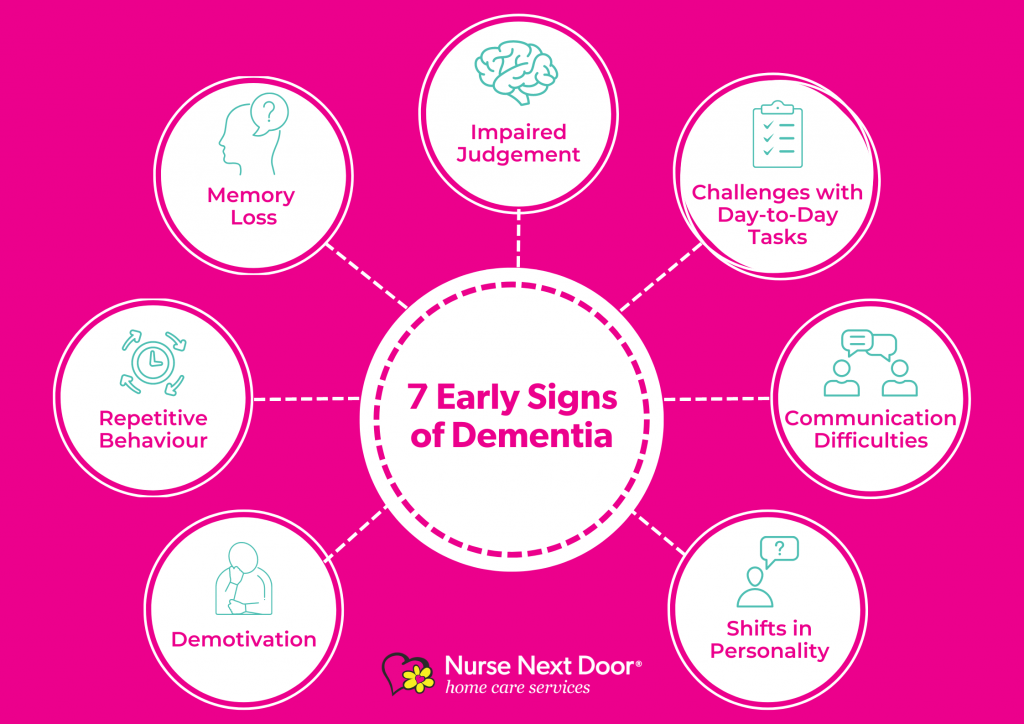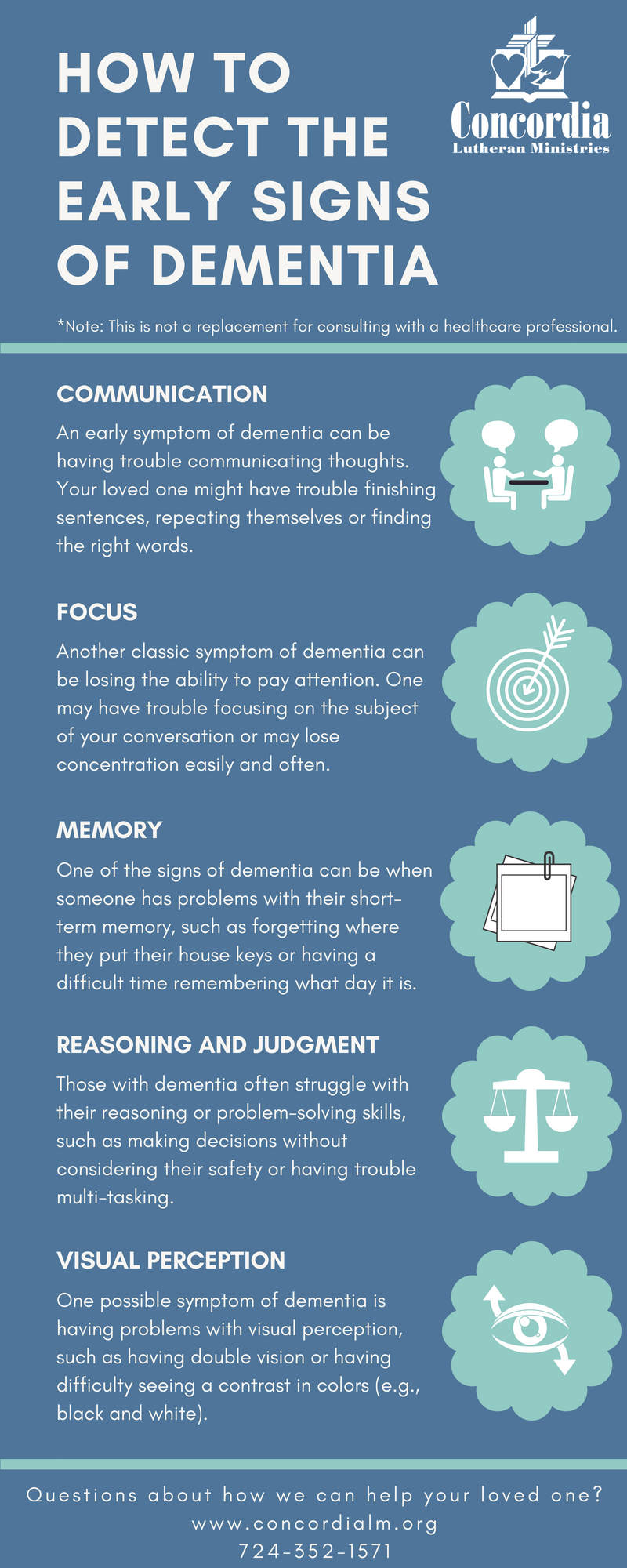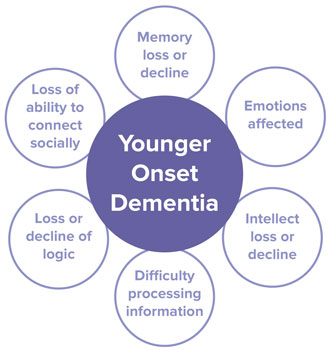Traveling Tips When Supporting Someone With Early Onset Dementia
Traveling Tips When Supporting Someone With Early Onset Dementia
Blog Article
Recognizing the Influence of Dementia on Day-to-day Live and Caregiving
Dementia affects daily life in extensive means, impacting not simply those diagnosed however also their caregivers. As cognitive decline progresses, you might observe modifications in interaction and routine that obstacle both celebrations.
The Phases of Dementia and Their Effects on Daily Life
As you navigate the trip of mental deterioration, recognizing its phases can significantly influence exactly how you handle everyday life. Dementia commonly advances through 3 primary phases: early, middle, and late.
Throughout the middle phase, you'll experience much more noticeable cognitive decrease. Daily tasks might come to be tough, and keeping your independence might call for modifications. Using pointers and streamlining your atmosphere can help.
In the late phase, individuals commonly need significant support with daily activities. Preparation for treatment ends up being necessary, concentrating on comfort and quality of life. By recognizing these stages, you're far better equipped to react proactively, ensuring you or your liked one can browse the obstacles with self-respect and elegance.

Adjustments in Communication and Social Interaction
Just how do changes in communication impact your daily interactions as mental deterioration proceeds? As mental deterioration breakthroughs, you could observe that easy conversations end up being difficult. Words may escape you, or you may battle to discover the best phrases. This can lead to frustration for both you and your liked ones. Nonverbal signs, like gestures or faces, become increasingly essential.
You may discover it less complicated to attach via these means as opposed to depending only on spoken language. Listening abilities can likewise transform; you may locate it harder to adhere to conversations or remember what was just claimed (Frontotemporal Dementia). This can lead to misunderstandings or sensations of isolation
Motivating patience and producing an encouraging setting can help. Taking part in activities that cultivate link, like songs or art, can boost social communications. Bear in mind, preserving relationships is still possible; it's just about adjusting to new ways of communicating.
Effect On Daily Routines and Activities
While maneuvering everyday routines, you'll likely see that jobs you as soon as completed easily come to be more difficult as dementia progresses. You could discover yourself neglecting actions in acquainted regimens or battling to recall where you positioned products.
Planning your day can feel overwhelming, making it more challenging to stick to a schedule. You might need suggestions for appointments or to take drugs. Adapting your atmosphere can assist; for example, labeling items or utilizing checklists can streamline jobs. Taking part in recurring, organized tasks can also give convenience and a feeling of achievement. Remember, it's alright to ask for help. Surrounding yourself with encouraging pals or household can make managing these adjustments a bit simpler.
Psychological and Behavioral Difficulties
Guiding through day-to-day regimens can produce not simply useful challenges, yet behavioral and also emotional ones. You might discover modifications in state of mind, such as boosted stress and anxiety or frustration, which can stem from confusion or difficulty in completing tasks. As you navigate these moments, it is essential to identify that your liked one may express their sensations with behaviors like frustration or withdrawal.
These emotional responses can be uncertain and may occur without warning, leaving you both sensation bewildered. You could find that familiar atmospheres or routines can help in reducing anxiousness, however maintaining persistence comes to be considerable. It is very important to confirm their sensations, also if you don't completely recognize them.
The Function of Caregivers in Supporting Individuals With Mental Deterioration
As a caretaker, you play a vital role in providing psychological assistance for people with mental deterioration. Establishing daily treatment regimens can produce a sense of security and convenience, helping to relieve their stress and anxiety. By comprehending their needs and making use of efficient methods, you can substantially boost their lifestyle.
Emotional Support Strategies
When caring for a person with mental deterioration, comprehending the psychological landscape is crucial for offering reliable support. You'll commonly locate that patience and compassion go a lengthy method. Confirm their sensations; if they express complication or frustration, recognize it without rejecting their feelings. Simple motions, like holding their hand or keeping eye call, can develop a feeling of safety. Attempt to engage in tasks that they enjoy, as this can stimulate delight and connection. Keep in mind to interact clearly and gradually, making use of a calm tone. Motivate expression through songs or art, which can work as an effective outlet. Eventually, don't forget to deal click now with your own emotional needs; seeking support for yourself can improve your ability to look after them.
Daily Treatment Routines
Developing day-to-day care routines is important for giving stability and comfort to individuals with mental deterioration, as these routines can help decrease complication and anxiety. You can begin by outlining a regular Fall Risk routine for meals, activities, and remainder. This predictability assists your liked one feel a lot more safe and involved.
Incorporate acquainted jobs, like folding washing or watering plants, which can stimulate positive memories and promote a feeling of success. Usage aesthetic signs, such as calendars or lists, to direct them through the day.
Be flexible, though; adapt regimens as needed based upon their state of mind or power levels. Fall Risk. Bear in mind, your persistence and understanding are crucial in navigating their changing needs, ensuring they feel sustained and valued throughout their day-to-day live
Creating a Safe and Comfortable Living Atmosphere
Creating a risk-free and comfy living atmosphere is vital for people with mental deterioration. You'll intend to make home safety adjustments that lower threats and guarantee experience to provide a feeling of comfort. By concentrating on these facets, you can assist create a room that supports both safety and security and health.
Home Safety And Security Alterations
As you browse the obstacles of dementia, making home safety alterations can substantially enhance convenience and safety and security. Start by getting rid of tripping risks like rugs and clutter, ensuring pathways are clear. Mount grab bars in shower rooms and non-slip mats in the shower to protect against falls. Consider using brighter lights and evening lights to enhance exposure, specifically during nighttime. Tag important locations, such as the restroom and kitchen, with clear indications to aid with orientation. Protect any type of sharp objects or harmful substances look these up out of reach. Additionally, evaluate your home's locks and alarm systems to verify they're easy to use and offer satisfaction. These adjustments not only advertise safety and security however likewise motivate self-reliance, allowing your liked one to really feel more at simplicity in their atmosphere.
Comfort and Knowledge
After ensuring a safe atmosphere with needed modifications, promoting comfort and experience is important for people with dementia. Preserve a regular routine to help them feel grounded and minimize stress and anxiety. Engaging in acquainted activities, such as paying attention to music or gardening, can enhance their feeling of belonging, making their living setting a real shelter.
Strategies for Effective Caregiving and Assistance
While navigating the obstacles of dementia care can really feel overwhelming, applying reliable methods can greatly enhance both the caretaker's and the client's everyday experience. Begin by developing a routine; predictability helps in reducing stress and anxiety for both you and your enjoyed one. Usage clear, straightforward interaction-- straight concerns and short sentences can stop confusion.

Do not neglect to take care of on your own; routine breaks and link with support system. Sharing experiences with others in similar situations can offer beneficial understandings and psychological alleviation.
Finally, continue to be individual and flexible. Dementia can bring unforeseeable modifications, so adjusting your strategy is crucial. By employing these techniques, you can foster a much more favorable environment that benefits both you and your loved one.
Regularly Asked Inquiries

What Are the Different Kinds of Dementia?
You'll discover numerous sorts of mental deterioration, consisting of Alzheimer's, vascular mental deterioration, Lewy body mental deterioration, and frontotemporal mental deterioration. Each type influences memory and cognitive function in a different way, so understanding the differences is essential for correct medical diagnosis and treatment.
Just How Can I Help Someone With Early-Stage Dementia?
You can assist someone with early-stage dementia by holding your horses, offering support, and urging them to take part in activities they appreciate. Keeping regimens constant and keeping open interaction can likewise make a considerable difference in their day-to-day life.
Exist Financial Resources Available for Dementia Treatment?
Yes, there are funds offered for mental deterioration care. You can discover government aid programs, nonprofit organizations, and insurance policy alternatives. It's also important to speak with neighborhood firms for details sources customized to your scenario.
What Legal Factors To Consider Should Caregivers Know?
As a caretaker, you must take into consideration power of lawyer, medical care proxies, and guardianship legislations. It's vital to comprehend the legal rights and duties you hold, ensuring your enjoyed one receives ideal treatment and security.
How Can I Manage Caretaker Anxiety?
You can handle caregiver tension by focusing on self-care, looking for support from close friends or groups, setting sensible expectations, taking breaks, and practicing leisure strategies. Keep in mind, your wellness matters equally as high as the person you're looking after.
Understanding the Influence of Dementia on Daily Life and Caregiving.
As you navigate the trip of mental deterioration, comprehending its phases can markedly affect just how you take care of day-to-day life.While maneuvering everyday regimens, you'll likely observe that jobs you as soon as completed easily become extra challenging as mental deterioration proceeds.Establishing daily care routines is crucial for giving security and comfort to individuals with dementia, as these routines can assist lower complication and anxiousness.While navigating the challenges of dementia treatment can really feel overwhelming, applying reliable strategies can greatly boost both the caretaker's and the patient's day-to-day experience.
Report this page